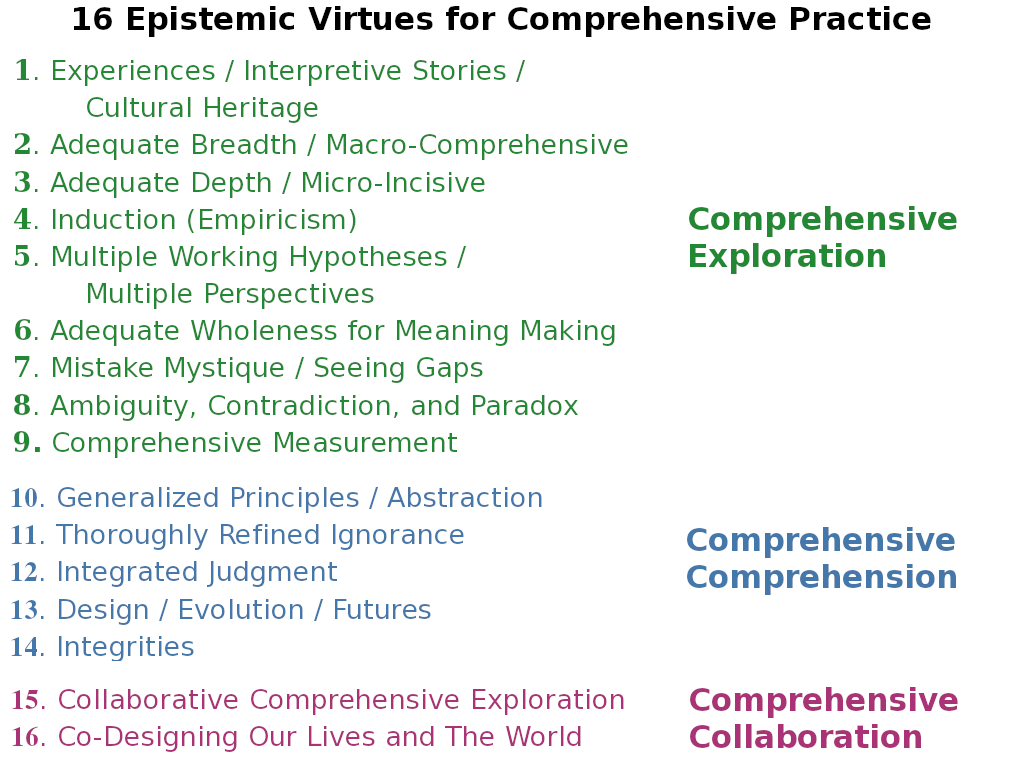By examining considerations from traditions that have examined intellectual virtues, we may come to better understand the virtues we need to develop our comprehensivity, our ability to comprehend our worlds broadly for context and deeply for clarity by taking seriously Buckminster Fuller’s aspiration of “wanting to understand all and put everything together”.
This resource will look at one 10 minute video lecture from Linda Zagzebski’s exquisite course on “Virtue Ethics”, produced by the University of Oklahoma, to spur our thinking about the intellectual virtues that might help guide our comprehensive practice, our comprehensive participation in our worlds. The result will give us an opportunity to review all 25 of our prior resources.
Intellectual Virtues
R. Buckminster Fuller’s approach to comprehensive thinking starts with Universe: “The universe is the aggregate of all of humanity’s consciously-apprehended and communicated experience”. This source for our learning can be seen as the collective cultural heritage of Humanity through all history. From this vast heritage, we have accumulated many traditions of inquiry and action. These traditions and their accumulated experiences are the sources for all our learning.
Comprehensive thinking is any effort to explore this vast inventory of experiences and traditions to address our concerns, intentions, and situations. In the resource The Measurements of Life, we learned that an interpretation is what to consider and how to consider it. So comprehensive thinking can also be seen as the process of forming interpretative stories building on our inventory of traditions and experiences. But to be comprehensive, comprehensive thinking aspires to further examine these stories with comprehensive measurement or assessments to form “adequately macro-comprehensive and micro-incisive” (Buckminster Fuller’s catchphrase for our comprehensivity) judgements to better engage our worlds and its peoples with understanding and effectiveness.
With this context for our exploration, what are intellectual virtues?
Continue reading →
Recent Comments